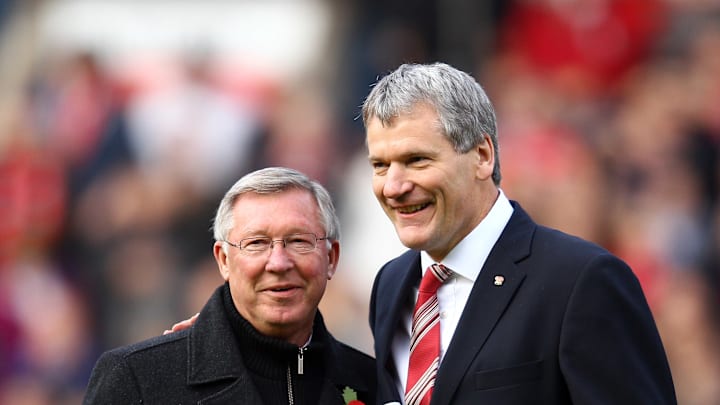Over the coming weeks, we will be analysing the transfer windows of each season since the departure of the legendary Sir Alex Ferguson following the conclusion of the 2012/13 season.
To understand why Manchester United have failed so consistently and catastrophically in the transfer department in the past decade, we must look at the very first reason for this. The summer of 2013 marked the end of an era for the club as Sir Alex’s tenure came to an end. However, further key departures followed and long began the start of a treacherous turn of fortunes for United in the second half of 2013.

The most significant on field departure of the summer of 2013 came through the retirement of the legendary Paul Scholes. In truth, the veteran midfielder had not played a lengthy role in the 2012/13 season, but still provided key stability and moments that helped United win the Premier League title after the heartbreak of ‘Aguero’ season.
United looked in good shape to continue to challenge for titles in the following years. The club had just claimed their 20th league title and while the squad required minor repair, the players available to new manager David Moyes were proven winners.

The most significant impact came from the departures of Sir Alex Ferguson and Chief Executive David Gill. Ferguson had been solely in charge as a sporting director and manager for years, analysing not only their playing styles but researching the character of the players that were recruited. With the exception of a few, he rarely got a transfer wrong and could sniff out a bad apple like a pig sniffs out a truffle. As this series progresses, we’ll see just how important this is in recruitment over short and long term purchases.
Being made of the right stuff is an intangible trait. You could have the right mentality to run riot in La Liga or Ligue 1. You could be Man of the Match in a Champions League final. You could be vital to the success of a team like Real Madrid. You could even score in a World Cup final (yes, I’m talking about Ángel Di María). But despite all of these memorable accolades, you might not have the right ingredients to play for Manchester United.
Not only could Fergie find the right players to improve a first team squad on the pitch and dressing room but also, he was a huge reason players even wanted to play for Manchester United. Ferguson was a winner and he bred winners. Almost every player who played under him has a stash of medals that most players in the elite game, despite having the talent, could only dream of.
Some people will argue that footballers only care about big contracts and how much money they can squeeze out of each deal, but anyone who has ever been lucky enough to get to know a top professional footballer will tell you that they want glory. They want to win… and playing for Manchester United under Sir Alex Ferguson usually guaranteed that. With Ferguson’s departure, the knowledge around recruitment and the guarantee of trophies was gone.
In May 2013, Sir Alex Ferguson left the club in a fairytale fashion. Then, only 8 years into the Glazer’s mismanagement of the Red Devils, the cracks began to show almost instantaneously. Without the Scotsman, the football brain of the operation was gone and there was no system in place to replace him. Furthermore, the man in charge of getting transfer deals of the line also left and was replaced by a man called Ed Woodward. David Gill had been at Manchester United since 2000 and by 2013 had spent 10 years as chief executive. The pair’s track record together when it came to signing players for the right price, at the right time and in the right way was unmatched in British football.
With two of the most influential men in British football leaving the club, United needed to have a strong base system in place. They needed a plan in place for identifying and landing targets, with a streamlined process of scouting and recruitment to fast-track signings for the incoming manager.
Unfortunately, no plans had been made for the eventual departure of Sir Alex Ferguson and David Gill. In fairness to United, Ferguson did not retire for football reasons. His late wife Cathy, had lost her sister Bridget and Alex wanted to be there for his wife and sacrificed the club that he dedicate his best years to over his beloved spouse.
However, the club surely should have anticipated the dreaded day coming where the football world would stand still. Ferguson was no royalty but a club of United’s stature should have had an Operation London Bridge equivalent in place for their King’s retirement,
‘Ferguson is retiring…? As in, that Alex Ferguson?’ is a conversation that will have been repeated across the world in many languages.
Over the course of this month, we will look at the next 10 years that followed…
